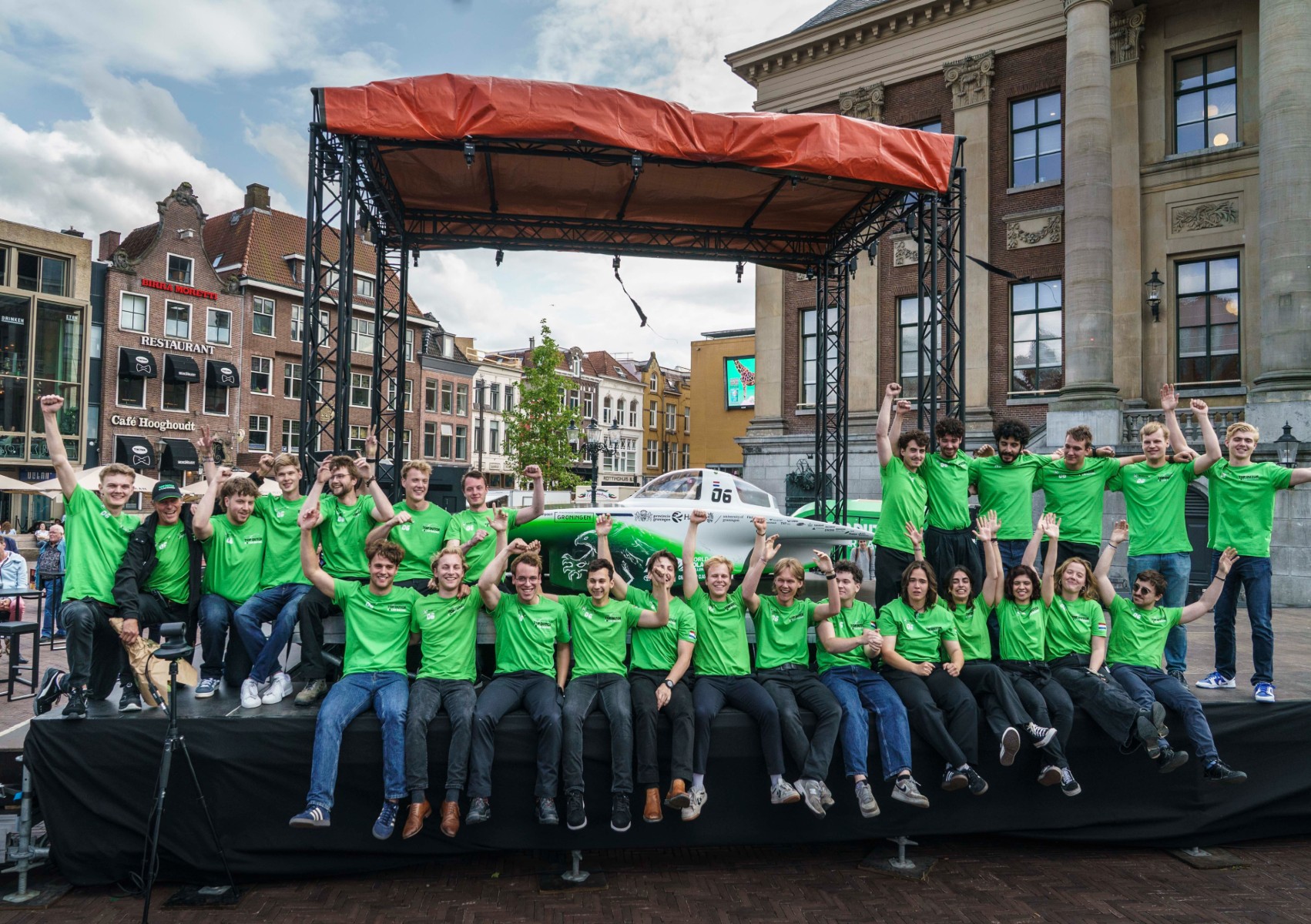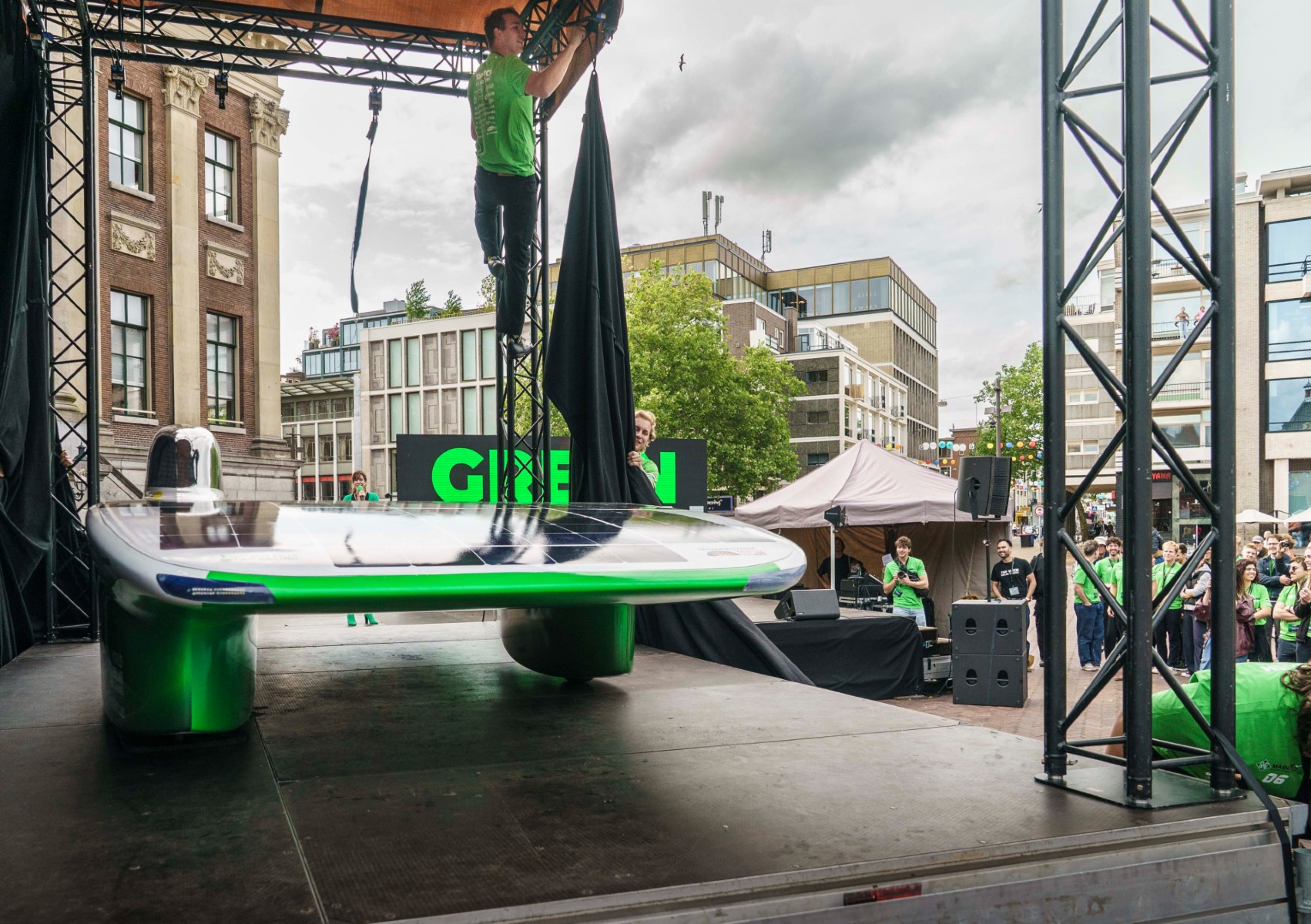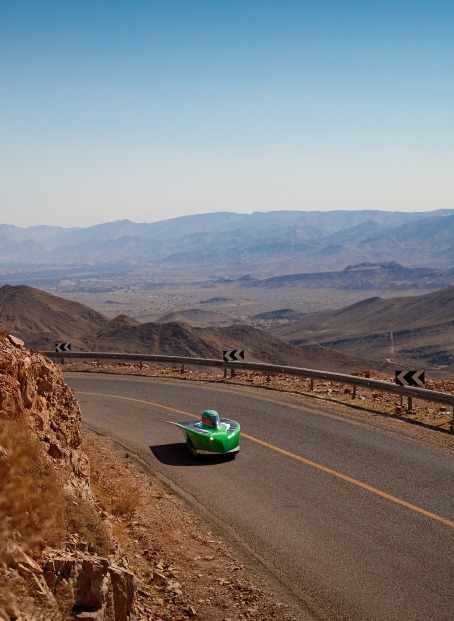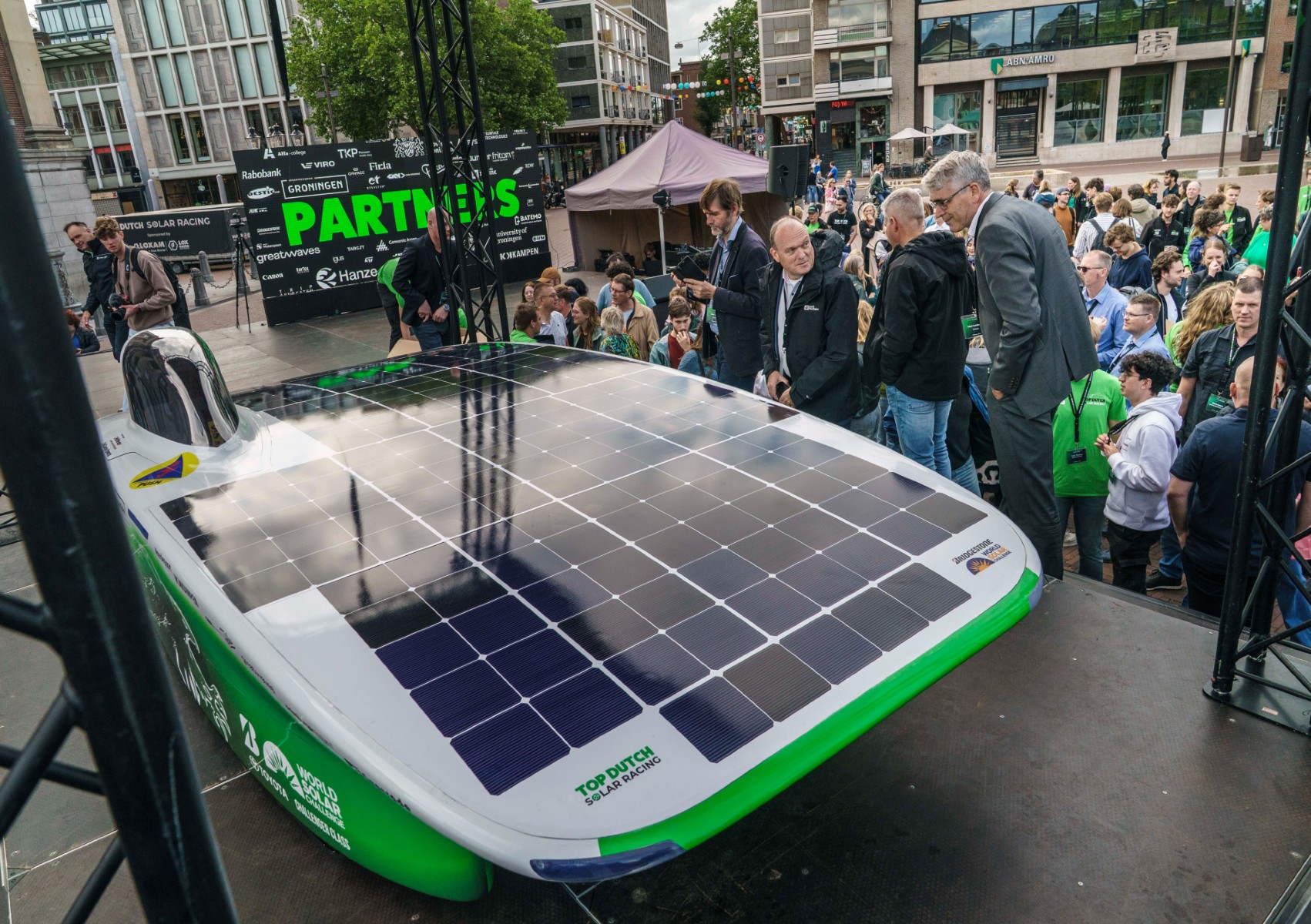Top Dutch Solar Racing presents Green Falcon at the Grote Markt
The students of Top Dutch Solar Racing unveiled their brand-new solar car Green Falcon at Groningen’s Grote Markt last Friday. With their race car, they will compete in the Bridgestone World Solar Challenge, the world solar racing championship that takes place in the Australian outback, starting in late August. Their ambitions are high: ‘We are fully committed to winning.’
The crowd got to see an all-new solar car called the Green Falcon during the spectacular presentation on Grote Markt.’We were extremely pleased with this prime location,' says Julliette Evers, the team’s Marketing Manager. Their goals are clear. 'We want to put the Northern Netherlands on the map and are fully committed to winning in Australia.'
The Challenge, which takes place once every two years, crosses the Australian outback over a distance of more than 3,000 kilometres. The race starts in Darwin and runs via the Stuart Highway through Alice Springs to Adelaide. Only solar-powered cars are allowed to participate in the race, competing in two different classes. Top Dutch Solar Racing competes in the class that is all about speed — think of it as the Formula 1 of solar racing.

A catamaran-like car
The Green Falcon from Top Dutch Solar Racing has a striking catamaran design. The innovation stems partly from new rules introduced this year, allowing teams to install up to six square metres of solar panels on their cars, compared to four square metres allowed in the previous edition. ‘As a result, we had to build a bigger car.’
The new catamaran-shaped car offers extra stability, Evers emphasizes. 'We are taking quite a risk with the design, as we are the only team with a catamaran so far. However, we are confident that it will work.’ The team drew inspiration from nature to improve the aerodynamics. ‘The car was named the Green Falcon for a good reason. For the design, we looked at the way real birds fly, in collaboration with researchers from the University of Groningen.’

Like a hot knife through butter
Another innovation is the slight tilt of the car, which should also improve aerodynamics. ‘Like a hot knife through butter’, that is how the Green Falcon should defy the Australian wind, says Evers. Innovations have also been made in the areas of electronics, steering system, and suspension. The team can adjust the height of the car. That comes in handy when Australian roads get bumpy or slippery.
The team consists of students from Noorderpoort (secondary vocational education institute), Hanze University of Applied Sciences, and the University of Groningen. This is a unique combination within the student solar teams, which typically consist of students from one or two institutions at most. ‘Our team is incredibly versatile,’ says Mariza Christodoulou, Operations Officer and student at the University of Groningen. ‘Everyone brings their own set of skills. For example, a student from the UG may ask the ‘why’ questions, while someone from Hanze UAG may say: ‘how are we going to implement that?’—a perfect mix.’

Kangaroos and spiders
The students are expecting a great adventure in the Australian outback. ‘During the race, we will encounter various obstacles on and along the road, such as bushfires, kangaroos, and road trains, which are very long trucks.’ That is why a team car will drive ahead to identify any potential obstacles in advance. ‘The wind is also a considerable challenge; it can be incredibly windy—in the past, several teams have been blown off the road.’
The Green Falcon will be flown to Australia at the beginning of June. Great care must be taken during the transport, Christodoulou says. ‘Everything has to be packed as cleanly as possible and we must make sure that no biological material is accidentally packed. In the previous edition, Australian customs found a spider among the equipment. They are incredibly strict about that, which caused the previous team a lot of delay.’
Northern Netherlands
Traditionally, the race starts in October, but this year it has been moved to the end of August. This means we have two months less preparation time. ‘We also have to deal with different weather conditions,’ explains Evers. ‘It is mainly colder at night — close to freezing — but during the day, it can still get very hot in the outback. Our drivers will have to cope with temperatures of over 40 degrees in their cabs, but they are well prepared for that.’
The starting signal will sound in Darwin, on 24 August. The students, who will travel to Australia in a group of 25 members, can hardly wait. Their main competitors are the student teams from the University of Twente and TU Delft. They have already won the race before; for Groningen, it would be a first. Last year, the victory went to a Belgian team. ‘This year, we want to bring the title to the Northern Netherlands for the first time.’

More information
More news
-
15 September 2025
Successful visit to the UG by Rector of Institut Teknologi Bandung
